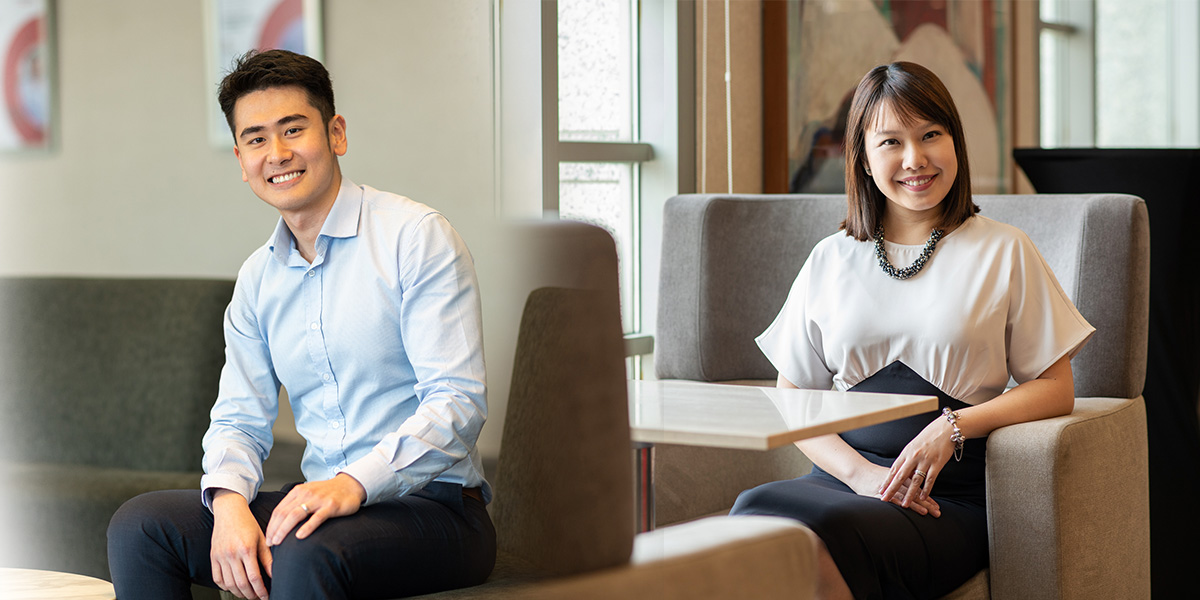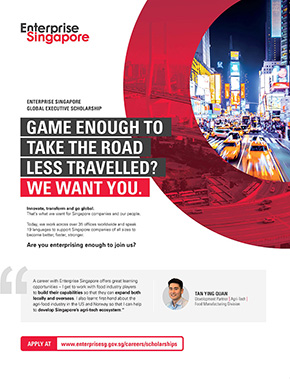The business landscape is becoming more competitive. Businesses find themselves having to constantly innovate, internationalise, and re-think the way they strategise and plan for the future. Misquoting the old Beatles song, everyone needs a little help from their friends – and the same goes for companies, no matter how big or small they are. Budding start-ups require guidance in developing proper market entry strategies and managing their cashflow to ensure their survival, while large and high-growth companies can benefit from gaining access to useful industry connections and solutions to scale up.
This is where Enterprise Singapore comes in. A champion of enterprise growth, the organisation provides resources for companies to transform, innovate, and internationalise. We talk to Kate Lim, 29, Deputy Director of the Retail and Design team, and Tan Ying Quan, 28, a Development Partner specialising in Agri-Tech, to find out more about the dynamic career opportunities Enterprise Singapore has offered them and life behind the scenes.
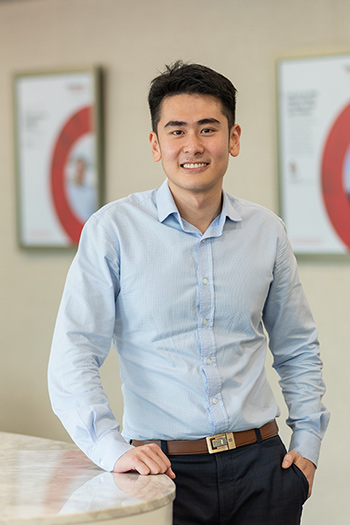
Tan Ying Quan
Development Partner, Agri-Tech
Bachelor of Business Administration with Honours, Specialisation in Management and Organisation
– National University of Singapore
What is the working culture like at Enterprise Singapore?
Kate: Work at Enterprise Singapore is fast-paced and challenging, but very fulfilling. The culture is inclusive and collaborative, with plenty of opportunities to work together with colleagues from different divisions and even across other government agencies. Officers are empowered early in their careers by getting opportunities to helm their own portfolios and drive projects. For example, I had the chance to travel to West Africa and Southern Africa in my first year of service to scope out business opportunities for our companies in the transportation and logistics sectors. We are also trusted to engage companies and contacts independently. In my second rotation as Regional Director in our Kuala Lumpur office, I was the organisation’s lead representative for interaction with Malaysian businesses and senior government officials. By developing these critical relationships, I was able to uncover business and partnership opportunities between these contacts and our Singapore companies that are keen to expand their businesses in Malaysia.
Ying Quan: The culture that we have in Enterprise Singapore is nurturing. I am someone who is curious and likes to tinker with new things. I was given the opportunity to help develop the Agri-Tech sector in Singapore and work with start-ups, which was something I was interested in. I also had a lot of support from my supervisor to learn more about Agri-Tech by attending international conferences such as the World Agri-Tech Innovation Summit in San Francisco and overseas trips to countries like Norway to learn how they develop their aquaculture industry. Enterprise Singapore is a good training ground for young leaders.
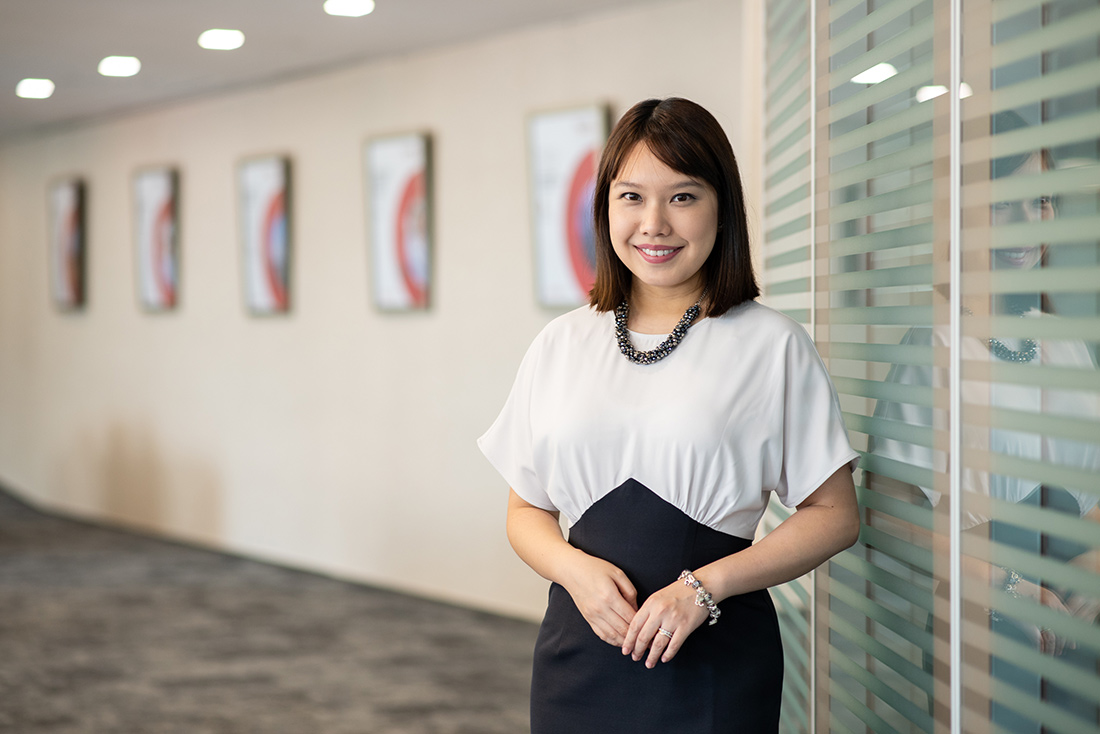
Kate Lim
Deputy Director, Retail and Design
Bachelor of Social Sciences (Hons)
– Political Science
– National University of Singapore
How has the Enterprise Singapore scholarship benefitted you?
Ying Quan: One of the good things about the scholarship is that it encourages overseas exchanges. When I was in NUS, I had the chance to participate in the NOC (NUS Overseas College) programme, where I did a one-year stint in the US at a marketing start-up called Visually. It benefitted me tremendously – I gained useful insights into the US market and its start-up ecosystem, as well as developed skills in digital marketing.
The internship I did as part of my scholarship also gave me a glimpse into the food industry and changed my perspective of the food service industry entirely. For instance, when I dine at a restaurant or eatery, I will assess the design of its menu, kitchen, and front of house workflow; how it utilises technology and deploys its labour productively to deliver a good customer experience. The scholarship opened a whole new world for me.
What can enterprises expect in the future with the next wave of progress?
Kate: With a limited market size in Singapore, internationalisation will be increasingly important for enterprises that are looking for sustainable growth over the long haul. With a thriving middle class and a growing need for supporting infrastructure and urban solutions, the Southeast Asian region is a good starting point for enterprises in their overseas expansion.
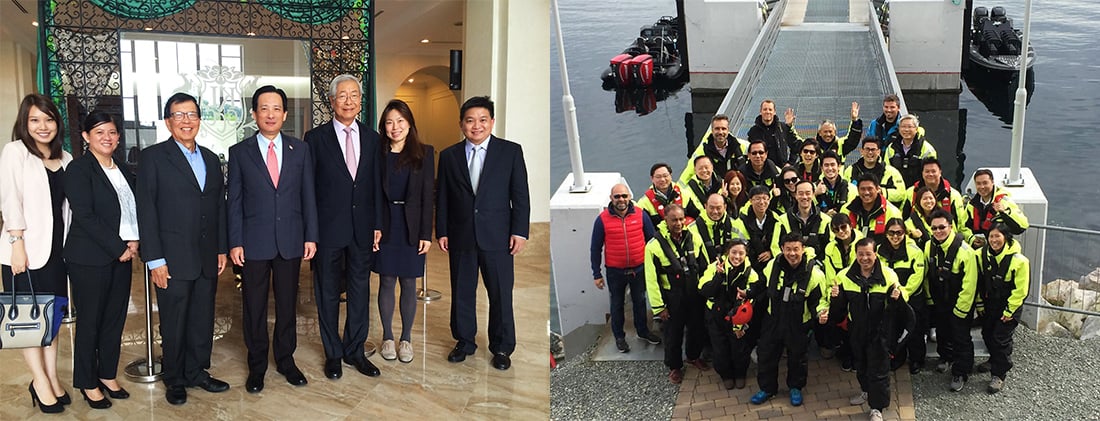
[Left] Kate, along with Pavilion Energy, calls on the senior management of Dialog Group in Malaysia.
[Right] Ying Quan with some Singapore companies in Norway to learn about how the country developed its aquaculture industry.
Any advice or tips for those looking to apply for this scholarship?
Kate: While a background in economics or business is not required, it will help in understanding how enterprises work, and how economic policy can affect the business landscape. Familiarise yourself with Singapore’s economic and business landscape, as well as trends and issues in the global macro-economy by reading business news and profiles of successful companies.
Ying Quan: Here at Enterprise Singapore, we often have to be the cheerleaders and possess the right personality in order to work with multiple stakeholders. You must also have the heart to help our local SMEs and start-ups succeed, and have one or two industries that you are particularly passionate about.
